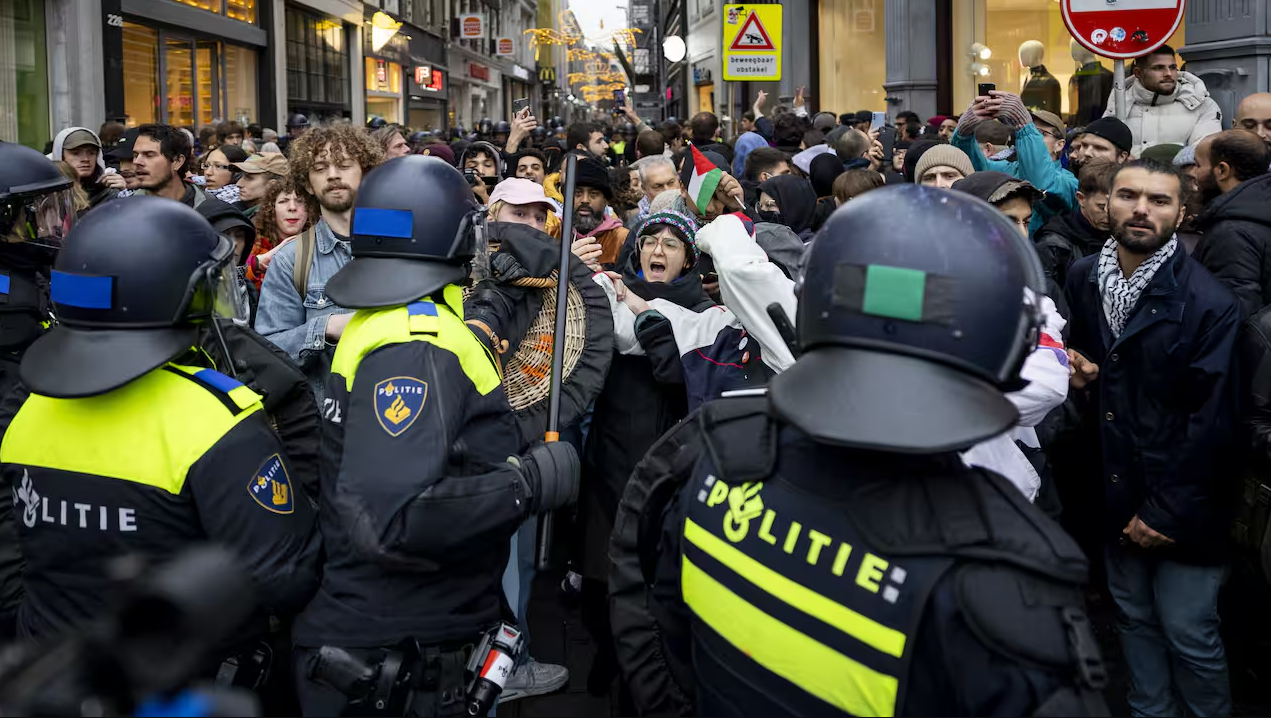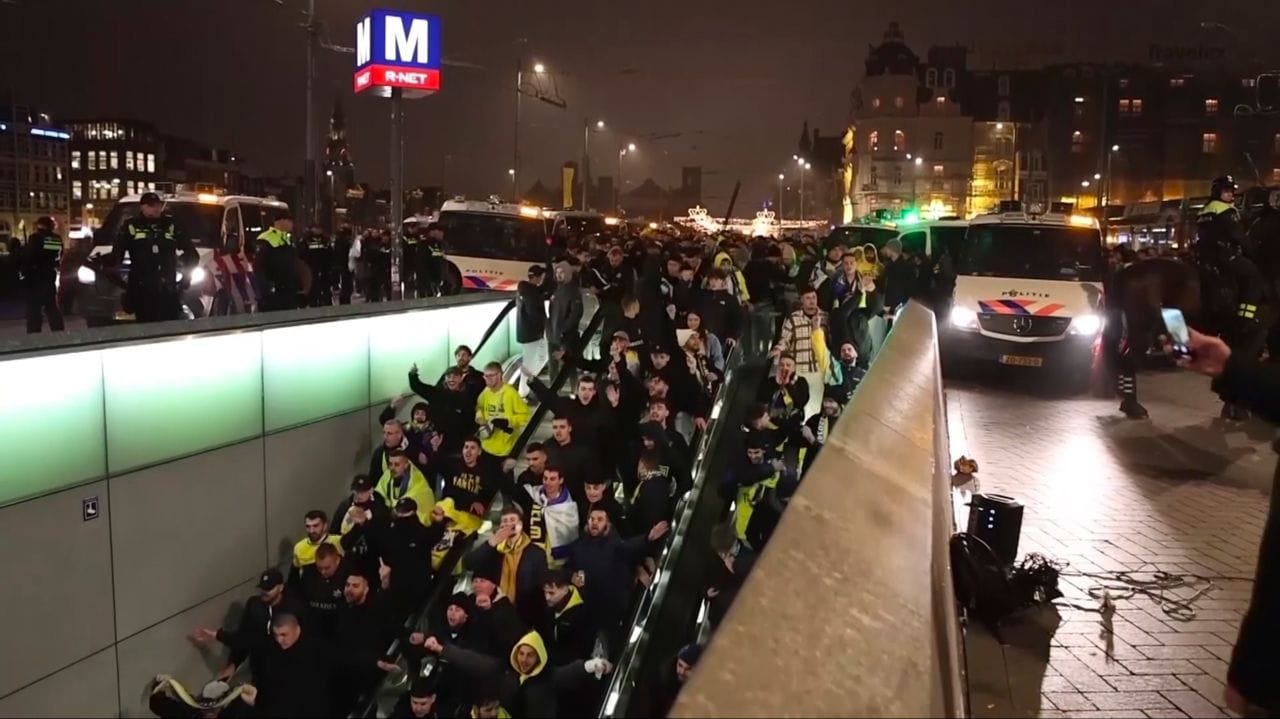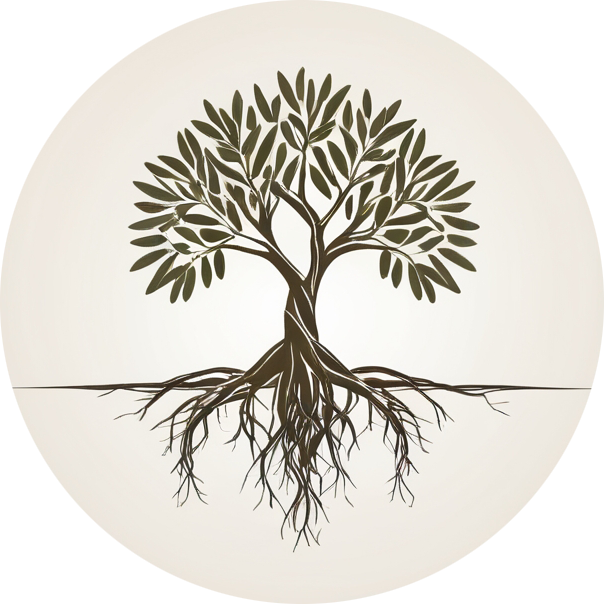The Amsterdam Incident: a reflection of Israel domination and the Netherlands failure to prevent genocide

By Beneath The Olive Tree | 11-11-2024
It is no secret that when hooligans arrive at your city chaos and disturbance arrive with them. Their behavior affect everything from public order to the mood of local residents. The usual calm of daily life is shattered by unruly behavior, loud altercations, and the constant undercurrent of potential violence. Racist actions are, unfortunately, a common part of hooligan behavior, ranging from throwing bananas at players and making monkey chants to engaging in online abuse. Authorities usually anticipate hooligan activity and act accordingly. They often deploy an array of strategies to maintain public order, minimize damage, and protect the community.
But what if I told you that there is a group hooligans that have managed to obtain some kind of super power, a way to make the authorities protect them while they wreak havoc?
The Beginning
It all started with Maccabi Tel Aviv hooligans arriving to Amsterdam to watch their team playing against Ajax in the Europa League. As all hooligans, they were roaming the city, singing their songs, and chanting their chants. But additionally, they were caught tearing down Palestinian flags, attacking a taxi driver, walking around with wooden sticks and rocks, ready to get into a fight. The police didn't do anything to stop them, so the locals decided to take matter into their own hands. They pursued and assaulted some of the hooligans, resulting in injuries that required hospitalization—an outcome that deserves condemnation. The problem, however, is with "selective condemnation".

Unmasking the Hate
But first, let’s revisit their songs and chants for a moment. These weren’t just ordinary songs; they were laced with racism and calls for genocide. One song included lines like "no schools in Gaza because there are no children left" and "let the IDF win to f*** the Arabs." Additionally, they were chanting "Death to Arabs."
Here is the thing: that last chant, according to the Geneva Convention on the Prevention and Punishment of the Crime of Genocide qualifies as incitement to genocide. This is especially alarming given that some of those chanting are current or former IDF soldiers. And in case you don't know, the IDF is currently committing a genocide in Gaza.
Official Reaction: Expectations VS Reality
As a rational human being, you would expect the Netherlands, a signer of the Geneva Convention, to protect their own citizens. International human rights agreements, such as the International Covenant on Civil and Political Rights (ICCPR), to which most countries are parties, call for governments to restrict expressions that incite hatred, violence, or discrimination. But they didn’t. They didn’t even acknowledge that these hooligans were chanting "Death to Arabs." Instead, government officials, including the prime minister, rushed to express support for the hooligans, labeling the attacks against them and any criticism of them as anti-Semitic. Astonishingly, the Dutch king even dared to compare these events to the Holocaust—a statement that deeply disrespects the memory of Holocaust victims, one of the gravest atrocities in modern history.
Did these officials pause, even briefly, to consider how Dutch Arabs might feel witnessing their own government standing alongside individuals chanting "Death to Arabs"? Such blatant disregard sends a powerful message to Arab communities: that their safety, dignity, and humanity are seemingly expendable in the eyes of those meant to protect them. This lack of acknowledgment deepens feelings of alienation, signaling that hateful rhetoric directed toward them is either invisible or, worse, tolerated by their leaders. It raises a painful question: do these officials even care about the message they’re sending? By ignoring the hurt and anger caused, they risk entrenching divisions within society, eroding the trust that binds communities together. In failing to address this, are they choosing politics over people, or silence over justice?
Selective Reporting
The media, unsurprisingly, seemed struck by selective amnesia. They overlooked a basic principle of reporting: starting from the beginning. Major news networks chose to omit the initial part where hooligans attacked others and chanted racist slogans, instead jumping straight to the moment when they were attacked. Sky News even deleted their initial report to change the narrative to one that portray the events as anti-semitic. This isn't shocking, as mainstream media has frequently acted as an apologist for Israel, distorting reality and gaslighting their audiences.
Victimhood, Aggression, and Double Standards
The events in Amsterdam serve as a small-scale reflection of Israel's longstanding pattern of behavior. Israel has often been accused of initiating aggression and inciting violence, yet when there is any form of resistance, they quickly adopt a posture of victimhood, calling for sympathy and exceptional treatment. This cycle—provoking conflict, then framing any response as unjustified aggression—has been a recurring dynamic. Just as in Amsterdam, where hooligans stirred hostility but claimed victim status when challenged, Israel has similarly framed its narrative on the world stage, casting itself as perpetually under siege even when its own actions spark the tensions. This approach not only deflects accountability but also complicates the path to meaningful dialogue and resolution.
What’s perhaps most troubling is the predictable response from much of the Western world, which almost instinctively steps in to shield Israel, defending its actions no matter the circumstances. This automatic alignment not only disregards the complexities of each situation but also sidelines the voices of those suffering on the other side. It paints a one-sided picture, where the grievances and rights of others are minimized or dismissed, reinforcing a double standard that damages prospects for peace and justice. This pattern doesn’t just obscure reality; it enables it, allowing aggression to go unchecked and cycles of violence to continue, all while insulating Israel from meaningful accountability.
Hope and Resistance
Yet, hope remains, especially with the Jewish community of the Netherlands leading anti-Zionist protests. These demonstrations persist despite police showing force against the protesters, underscoring the commitment of these individuals to stand against oppression. Their courage highlights a growing movement that refuses to be silenced, even in the face of intimidation.

Member discussion